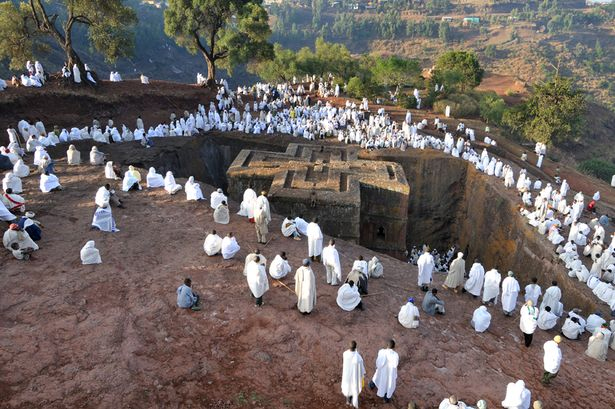An Ethiopian Easter: Unexpected wonders of Lalibela and Addis Ababa

Despite still being blighted by poverty, it is rich in culture and natural wonders and beginning to realise its potential as a tourist destination.
A gold-robed deacon stood in front of a makeshift altar at the shadowy heart of the nave, clutching a staff as he led the mournful chanting.
Surrounding him was a cluster of white-shawled priests, some holding bibles and candles, others ornate crosses and icons.
Around them were throngs of pilgrims, also robed in white, lost in a reverie of chanting and praying.
All I could do was sit transfixed in a darkened corner, my back against the stone wall of the ancient church carved out of the mountainside.
Not only was I in one of the most astonishing cultural sites in the world, but also in one of the most sacred places in Christendom during Easter.
It was as if I was watching proceedings from centuries past.
The Orthodox Christian pilgrims had flocked here to Lalibela from all corners of Ethiopia to take part in ceremonies like these.
The second-oldest Christian country in the world is still deeply pious and Easter is a serious business.
Followers eat a vegan diet for the 55 days leading up to the Orthodox Easter Sunday (May 5 this year), then everyone spends Easter eve at the church praying until 3am when it is announced that Christ has risen. After that, the party begins. Read more



